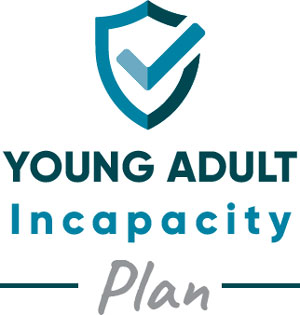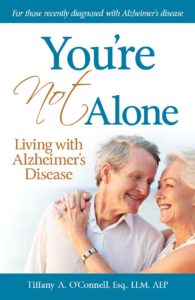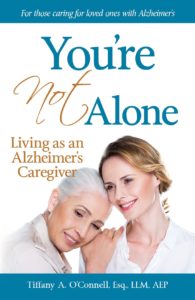July 2021
 |
 |
|
|
|
|
A New Treatment for Alzheimer’s Disease and the Controversy Surrounding It
The Food and Drug Administration (FDA) has approved a drug purported to slow the progress of Alzheimer’s disease. However, the decision is not without controversy. A recent article by AARP explores this subject in some detail. Here is a synopsis.
|
|
|
The drug, Aducanumab (brand name Aduhelm), was approved on June 7th. While it does not cure Alzheimer’s,
it is the first Alzheimer’s medication available in almost 20 years and the only drug that could slow the progression
of the disease. How? Testing indicates the drug can break up sticky plaques of protein that accumulate in the brains of many people suffering from Alzheimer’s. Health officials believe that by removing these plaques, Aducanumab may slow the rate of cognitive decline associated with Alzheimer’s. Other drugs currently on the market focus only on addressing symptoms, not causes, of the disease.
The FDA's approval is conditional, however. Biogen, which developed the drug with Eisai, must conduct additional studies to prove Aducanumab works the way it is intended. If the drug fails to do so, the FDA can withdraw its approval. Other issues surrounding the drug include its price. Biogen estimates that therapy will cost approximately $56,000 per year and it is unclear whether private insurance or Medicare will cover it.
Even so, advocacy groups such as the Alzheimer’s Association have applauded the FDA’s decision, calling it a landmark moment. "We know that slowing decline, particularly with early diagnosis, could add days, weeks, months, maybe even years of active life for individuals and families,” said Kristen Clifford, chief program officer at the Alzheimer’s Association.
|
|
|
|
Disagreements within the FDA over the drug’s approval
In November of last year an FDA advisory committee voted against the approval of Aducanumab. Why? Two identical studies produced quite different results. In one study, participants with early onset or mild forms of Alzheimer's saw their symptoms diminish after being given high doses of the drug. These folks showed signs of improved memory and were better able to manage activities like paying bills and shopping. Unfortunately, participants in the other study did not exhibit similarly positive outcomes.
Of the 11 members on the FDA’s advisory committee, 10 voted against the approval of Aducanumab. After it was approved anyway, three members of the committee resigned. While the FDA does not have to accept the recommendations of advisory committees, it typically does so. In this case, the agency used an accelerated approval process designed for new drugs that offer significantly better results than existing treatments in situations involving life-threatening or serious illnesses.
Inspiring hope for the future
In addition to the contention over approval and the high cost of treatment, there are other challenges associated with Aducanumab. For example, not everyone with Alzheimer's disease will qualify for treatment. Only about two million of the six million Americans currently living with Alzheimer's are in early stages of the disease and show signs of the sticky plaques that Aducanumab attacks. Determining the presence of these plaques requires costly brain scans and spinal taps that are unavailable to some patients, and the infusion therapy itself may be difficult to access if a patient does not reside near an infusion center. There have also been some troubling side effects, such as tiny brain bleeds or temporary swelling of the brain, which must be closely monitored.
However, according to Jeffrey Cummings, a research professor in the Department of Brain Health at the University of Nevada, Las Vegas, Aducanumab's approval will foster additional research. “Seeing the fact that we can sort of crack the code of Alzheimer's disease is just so meaningful, because it will attract funding, which will allow us to test more drugs, which will allow us to eventually make more approvals.”
A recent analysis authored by Cummings notes that there are currently 126 different therapies being tested in clinical trials. Some of these therapies, like the new drug aducanumab, attack the sticky plaques of protein. Others go after different aspects of the disease. Meanwhile, researchers have made great strides in understanding how to preserve brain health and cognitive functioning throughout the aging process using nonpharmacological strategies such as exercise, diet, and controlling blood pressure.
Let us hope that one of the new drugs, or a combination of therapies, will be the key to ending Alzheimer’s disease. Soon!
|
|
|
|
|
|
A Change to the Rules Governing Reverse Mortgages Provides Greater Protection for Non-Borrowing Spouses |
 |
|
|
A reverse mortgage is a loan that allows homeowners age 62 or older to borrow against the equity in their homes and receive a lump sum, a fixed monthly payment, or a line of credit. Reverse mortgages are often used by seniors to augment their income in retirement. |
|
|
|
Federal laws governing reverse mortgages have evolved over the years. In May, the Federal Housing Authority (FHA) issued a new rule increasing protection for non-borrowing spouses—that is, the spouses of individuals with reverse mortgages who are not named in the loan itself. Let’s take a brief look at the recent history of reverse mortgages to understand why this change is important and how it will benefit non-borrowing spouses.
In the past, if one spouse was under 62 years of age, he or she could not be named in the loan if the couple wanted to get a reverse mortgage. This had the potential for financial catastrophe. If only one spouse was on the mortgage, and that spouse passed away, the surviving spouse would have to repay the loan or be faced with eviction from the family home.
The Department of Housing and Urban Development made a change to this rule in 2014 that offered greater protection for some surviving spouses. The change stipulated that a couple with one spouse under the age of 62 could get a reverse mortgage if the underage spouse was classified as a “non-borrowing spouse.” Then, if the older spouse passed away, the non-borrowing spouse could remain in the home as long as he or she established, within 90 days, his or her “right” to do so. This right could be established in a number of ways, such as through a lease, a court order, or an ownership document.
Unfortunately, the 2014 change only applied to reverse mortgages taken out after the law became effective and it did not protect the spouses of borrowers who were forced to leave the family home due to medical problems.
The FHA’s new rule corrects these shortcomings and increases protection for the following:
- All non-borrowing spouses rather than just those whose reverse mortgages went into effect after 2014
- Non-borrowing spouses of borrowers who resided in a care facility for 12 consecutive months or more
- Spouses who were in a committed relationship with the borrower when the reverse mortgage was initiated but could not marry because of same-sex marriage prohibition… as long as the couple married before the borrower passed away
In addition, the new rule eliminates the requirement for non-borrowing spouses to show they have a title or legal right to stay in the family home.
Sadly, the new rule fails to protect spouses who weren’t married to the borrower when the reverse mortgage was initiated (with the exception, again, of same-sex couples who were unable to marry legally). Nor can the non-borrowing surviving spouse receive a reverse mortgage’s remaining balance.
|
|
|
Upcoming Events |
 |
Protecting Your Kids with Estate Planning
Friday, August 13 12:00 PM - 1:00 PM
Wills & Trusts 101
Wednesday, August 18 5:00 PM - 6:00 PM
Register today to reserve your spot for this webinar.
Additionally, registration for this event is critical so that we can contact you if it is prudent to cancel this session or if we need to change how we are able to offer this to you.
|
| Register Now |
|
|
A Personal Note From Tiffany |
 |
|
|
 |
Get the 3 Key Documents You Need in an Emergency with the Young Adult Incapacity Plan.
|
|
Parents, consider helping your child along so that your child understands what being an adult is and what responsibilities they now have. We, at O’Connell Law LLC, take this seriously and have just launched a special and affordable online package to help your young adult child easily get the above documents in place and still have an attorney who will guide them on the decisions they are planning to make. Talk with your child now and encourage them to get their key estate planning documents in place. |
|
|
|
Let us help you help your son or daughter so that they can get an estate plan done right now. Your son or daughter may not think this is very important (do you remember being feeling immortal?); but think of the peace of mind this will bring you…and the protection it will give your child should something unexpected happen.
As always, thank you for taking the time to read and reflect.
Sending you all a remote hug,
|
| Young Adult Incapacity Plan |
|
|
Order Our Complimentary Books
|
|
|
 |
|
You're Not Alone — Living with Alzheimer's Disease
Order Here |
|
 |
|
You're Not Alone — Living as an Alzheimer's Caregiver
Order Here |
|
|
Or Call Us at 508-202-1818
|
|
|
 |
|
|